Stranger Things star Joseph Quinn and the Hoard filmmakers on their new "body horror of the mind"
Exclusive: GamesRadar+ speaks to director Luna Carmoon, and stars Saura Lightfoot Leon, and Joseph Quinn about their Venice Film Festival hit Hoard
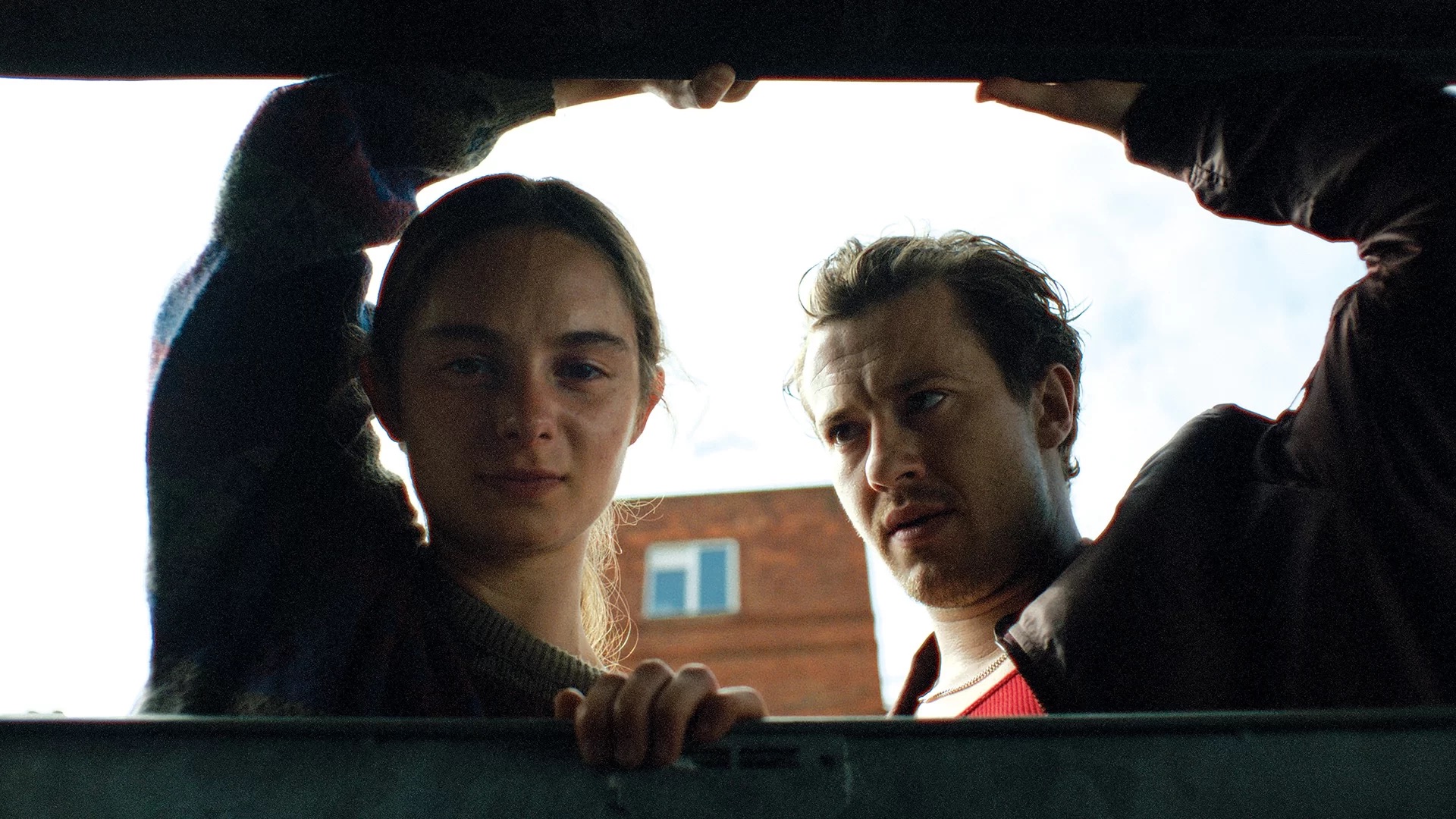
Hoard, best described by director Luna Carmoon (Nosebleed, Shagbands) as a "body horror of the mind," is a gut-wrenching exploration of grief, love, and the things we physically and emotionally can't seem to get rid of.
Taking place over two timelines, Young Maria (Lily-Beau Leach) lives with her mum Cynthia (Hayley Squires) in a home that seems like a hoarder's den to some – but to them, it's a fantastical world of magic that serves as a 'catalog' of their love. Older Maria (Saura Lightfoot Leon) spends her teenage years with her foster mom Michelle, but has never quite let go of of her childhood – or what her mother taught her. When an older boy named Michael (Joseph Quinn) comes around, everything changes – and Maria suddenly finds herself confronting the trauma of her past.
GamesRadar+ spoke to Luna Carmoon, Saura Lightfoot Leon, and Joseph Quinn about the making of Hoard, and all the guts, grief, (and sausage rolls), that went into the process.
GamesRadar+: What drew you to the script?
Joseph Quinn: I remember the first time I read it. It's such a strange script, it's so disturbing and powerful and reaching for something really extraordinary. The script was obviously a very compelling part of it, but the most compelling part of it for me was to work with Luna. After I met her, I was like, there's an aura about her that is undeniable and she's the most cinematically literate person I've ever met.
And I think to reach for something like this as someone that loves the art form so much, she's constantly going towards the mythic aspects of cinema and finding the more interesting way to tell the story in the script. So I was seduced by that, and by her.
Saura Lightfoot Leon: There was so much room for interpretation in the script, so I was really curious to see how she pulled it off, and I wanted to be a part of that journey. It was the moment I read [the script] when I got the audition – I was so confused and I was feeling so many things. The language that is used in Hoard is not my comfort zone, it's not my usual dialect. And all I wanted to do was understand it and live within it. When I don't understand and I feel a lot, something takes over.
Bringing all the latest movie news, features, and reviews to your inbox
I just got two scenes, and they were so out of context and I was like, 'What is happening?' But I immediately started improvising. I was like, 'Well, I need to figure it out for myself.' When you get a seed that is so beautiful and mysterious and it's got this element of magic that you want, you've got to explore it. It was just like unraveling a parcel. It was a journey that was really beautiful and very personal for me.
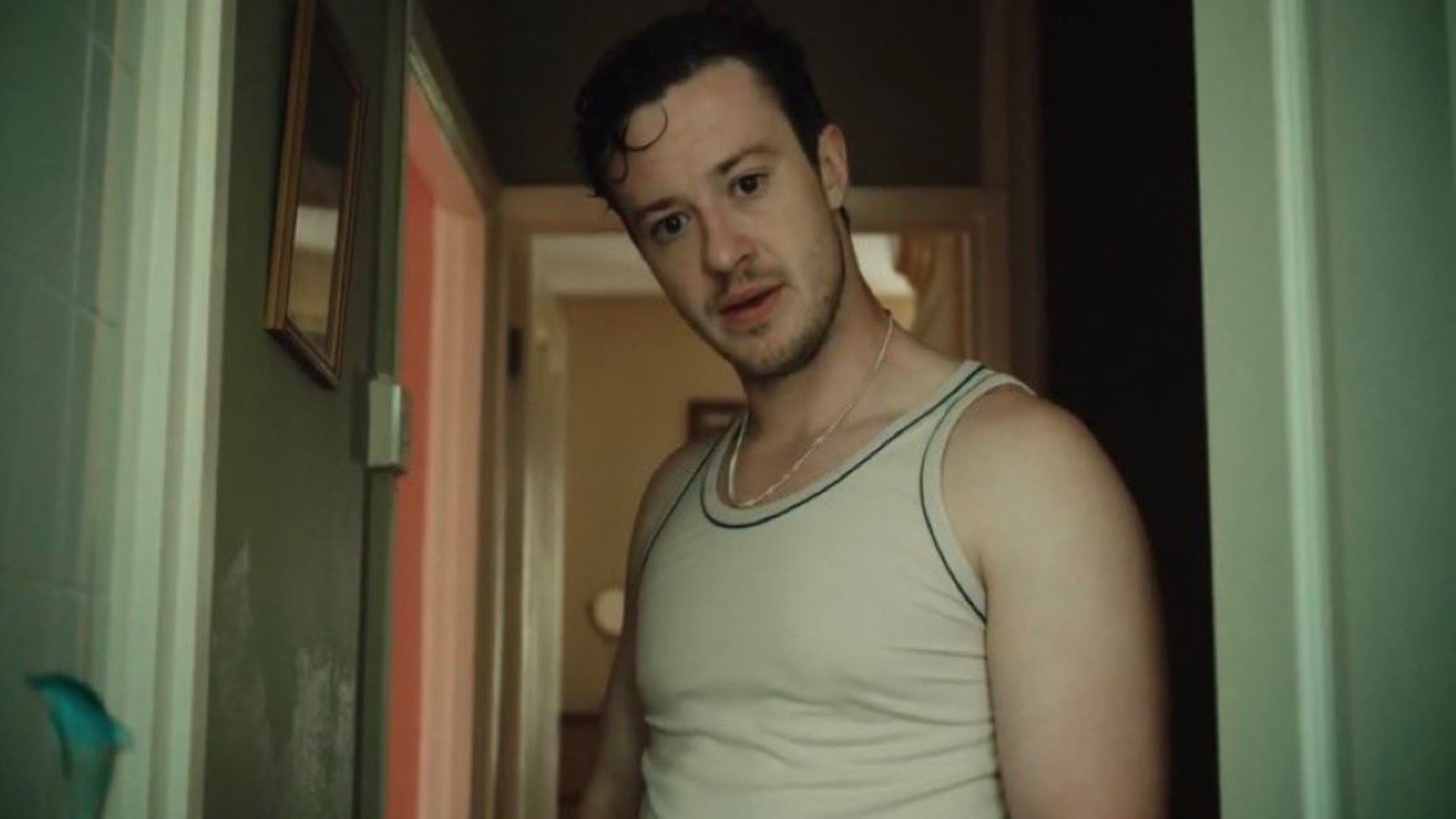
Speaking of the dialect and language in the film, I feel like certain quotes and phrases are still rattling around in my head. Is that the effect you wanted it to have on viewers?
Luna Carmoon: It's quite funny because not only is it a certain dialect – very south-east London – but there's almost a fantasy-like element to the absurd scenes. I likened it to how people talk in movies, "The cat is in the bag, the bag is in the river." It's like a whole weird syntax that [the characters Maria and her mother Cynthia] have built together that are like strange sort of cockney rhyming slang or just strange sayings that no one in my generation or even older probably knows. My grandparents raised me, I still live with my granddad, I still use them. I think it's very rare to meet someone my age who not only sort of sounds a bit like this now, but also uses those phrases. It's like someone's put an 80-year-old woman in my body.
You recently said that "spite is the great transformer," and that you originally thought you were going to keep the film to yourself. Can you expand on that?
LC: I just think a lot of us don't want to admit that venom and spite can really give us motivation, because sometimes we equate that to not being 'pure' or 'healthy' or 'loving'. And that's not what I mean by it. I do think that it has been a great transformer for me and I wish I knew other ways. I think one day I will know other ways and how to create things. But, you know, spite and rejection can often power you to be what you think are better versions of yourself, which aren't really, but it definitely is fuel for me sometimes to get going.
And it's not the entire journey of a project. It's birthed out of spite and venom, and then it transforms into something really healing and blooms into something really lovely. And that's what the gift of Hoard was to me.
That same Deadline article also described the film as a "body horror of the mind."
LC: Yeah, that's how I pitched it. I pitched it like that in an actual cheeky way because people fund horror much easier in this country [compared] to other things. So I pitched it as a body horror of the brain, but what's more horrifying than entering a psychosis and having a nervous breakdown? When you are in the real depths of rock bottom, you can imagine it being easier chopping your finger off than losing your marbles. And I have experienced it myself and with many others. It's easier to break a bone than to experience your brain having an actual meltdown. I mean [it's a body horror] as much as The Piano Teacher is a body horror.
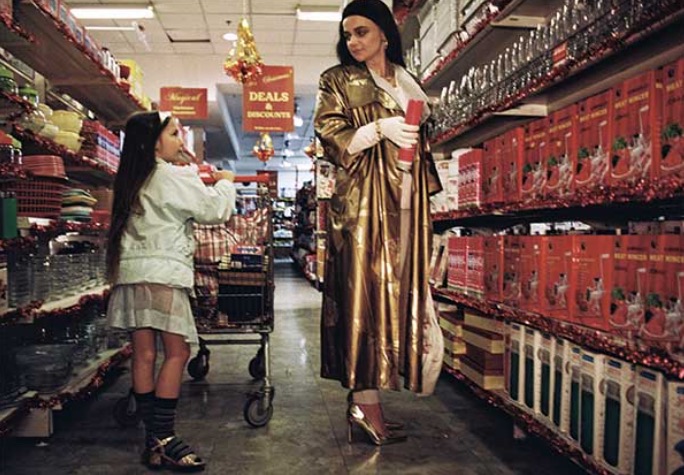
There are parts of the film that felt very Cronenberg to me, especially the iron and the literal licking of wounds. Can you talk about what other filmmakers have kind of had an influence on you or on this project specifically?
LC: I love Cronenberg. I love human Cronenberg – Dead Ringers and Crash are my favorite Cronenberg. Like, the horrifying nature of humans: it's beautiful and ugly, but we all exist like that. Some of us show it to certain people and some of us go our whole lives without showing that sort of ugly to one another. In terms of influences, I love British Cinema of the sixties and seventies, early Ken Russell and all of his documentarian work – and Women in Love is one of my favorite films. It's beautiful. Michael [Quinn's character] is definitely of the essence of men that Ken Russell works with like Oliver Reed, Alan Bates, etc.
I love early [Paul] Verhoeven, like Specters and Turks Fruit. Visually, even in Michael's wardrobe, it's very much when [he is] wearing the red vest – it's just like in Turks Fruit, and even the relationship between [Michael and Maria] is very much like that.
Here in the UK, we have the British Film Institute and these two lovely guys, one of them, William Fowler, they basically produced this line of films called BFI Flip Side where they restore films from the sixties and seventies. One of [the films] is I Start Counting, which is just amazing. And in terms of score, the scoring of that film by Basel Curchin was massively influential on how I wanted [Hoard] to sound. I didn't particularly want the film to sound nineties or eighties, but quite seventies. And Jim Williams managed to sort of take all of their influences and create a soundscape for these guys to be loopy and giddy.
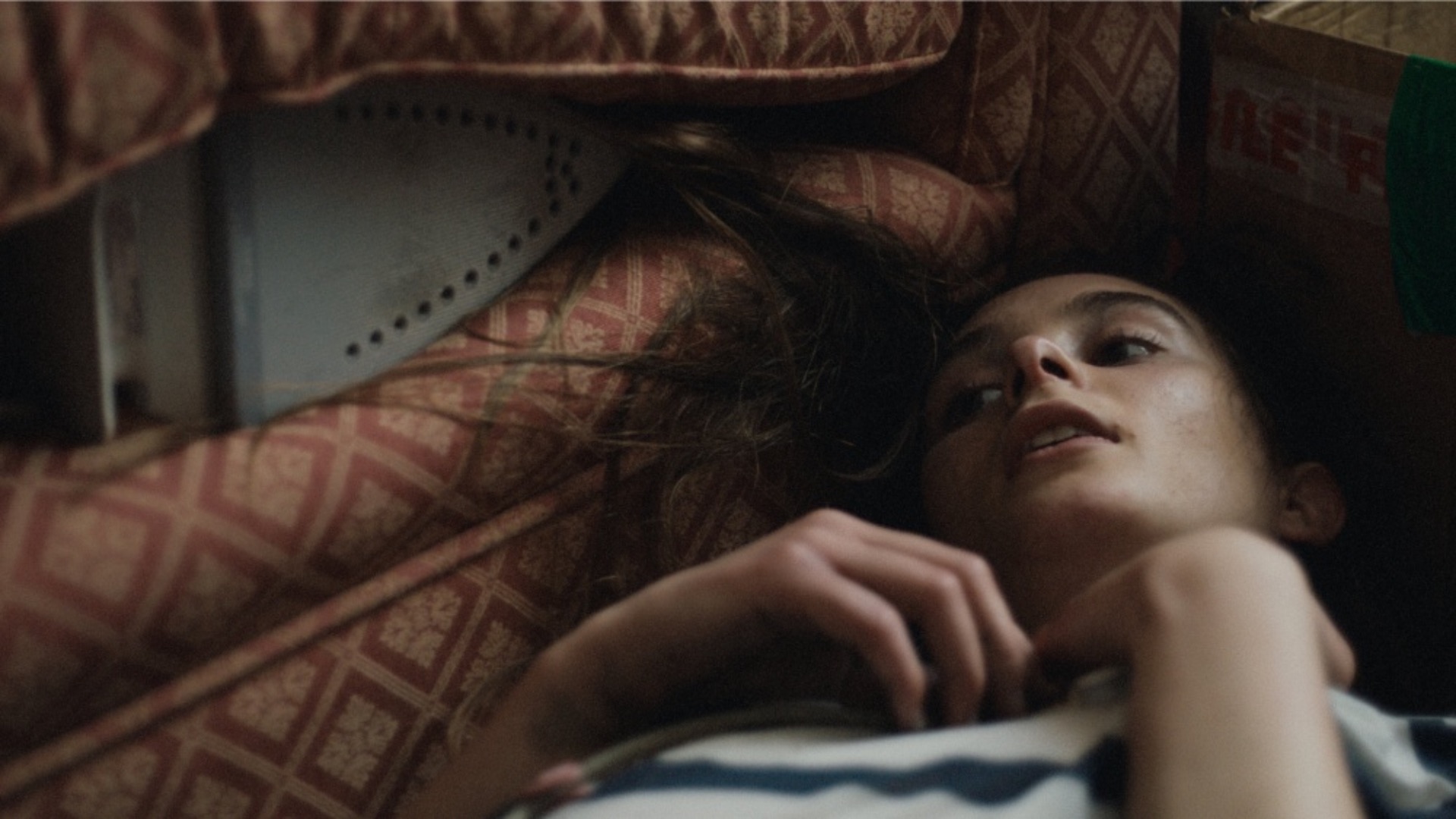
Speaking of the loopiness and giddiness, you two have this amazing chemistry. If you tell me that you never met before this, or that you're not old friends, I'm going to be in shock.
JQ: We met before we started filming this – we spent a little bit of time together, getting to know each other. Thank you for saying we had good chemistry. It felt, really exciting and fun to work with Saura, especially because when you are working with someone incredibly talented and dedicated, it's just a gift because it's not always like that. And the space that Luna created for us to experiment and to just push it as far as we could and feel like that was allowed between both of us and supported by Luna. It's a real treat and you can't force it. It's a product of the environment that you're in.
SLL: And we were in an environment where we had an exceptionally talented director and I had an exceptionally talented co-star. So if you set up that environment, hopefully something will come out of it. I loved working with Joe and I loved meeting Joe and we went on some Michael and Maria adventures. They were really fun for me because I got to meet Joe, but then it became sometimes a little something else. It became Michael and Maria. That was like pure delight. And then working with Joe was actually really fascinating because I think this chemistry you see is feral. It's animal.
It's fascinating because you see these different creatures and then it's like electricity happening. It's amazing that you can see it, but I felt it. It's like a push-pull thing. It's constantly changing – it's good friction. It was just pure pleasure working with you. And it's fun, you know? When it's fun and it comes from that place of light and growth, everything just feels easy.
You mentioned the word animal – I wrote down 'primal' a lot in my notes. There's something so guttural and heartbreaking about both of your performances. How did you get into those headspaces?
SLL: I love using music a lot. I used a lot of music just because I wanted to use something that didn't feel necessarily heavy. I listened to a lot of unusual different music and I would kind of tailor it. I would surprise myself. Sometimes I would just shuffle on certain playlists that I had made and it would just fill me with something and then I would spend time alone and then go into it.
Music is very emotional. It's an emotional trigger. I wanted to focus on something that was a little nonsensical that just gave feeling and sense and then [I could] just focus on Joe and letting whatever we were doing happen.
JQ: Kind of similar, really. Just staying open to the ideas in the moment really. And I guess practically I had to put on a bit of [weight] as Luna wanted him to be a bit bigger. So I did that. Plenty of sausage rolls, lots of sausage rolls, [laughs]. And then mainly just staying open to what was happening there, because you can't really plan anything, especially the parameters of this project anyway, I think you just had to be there.
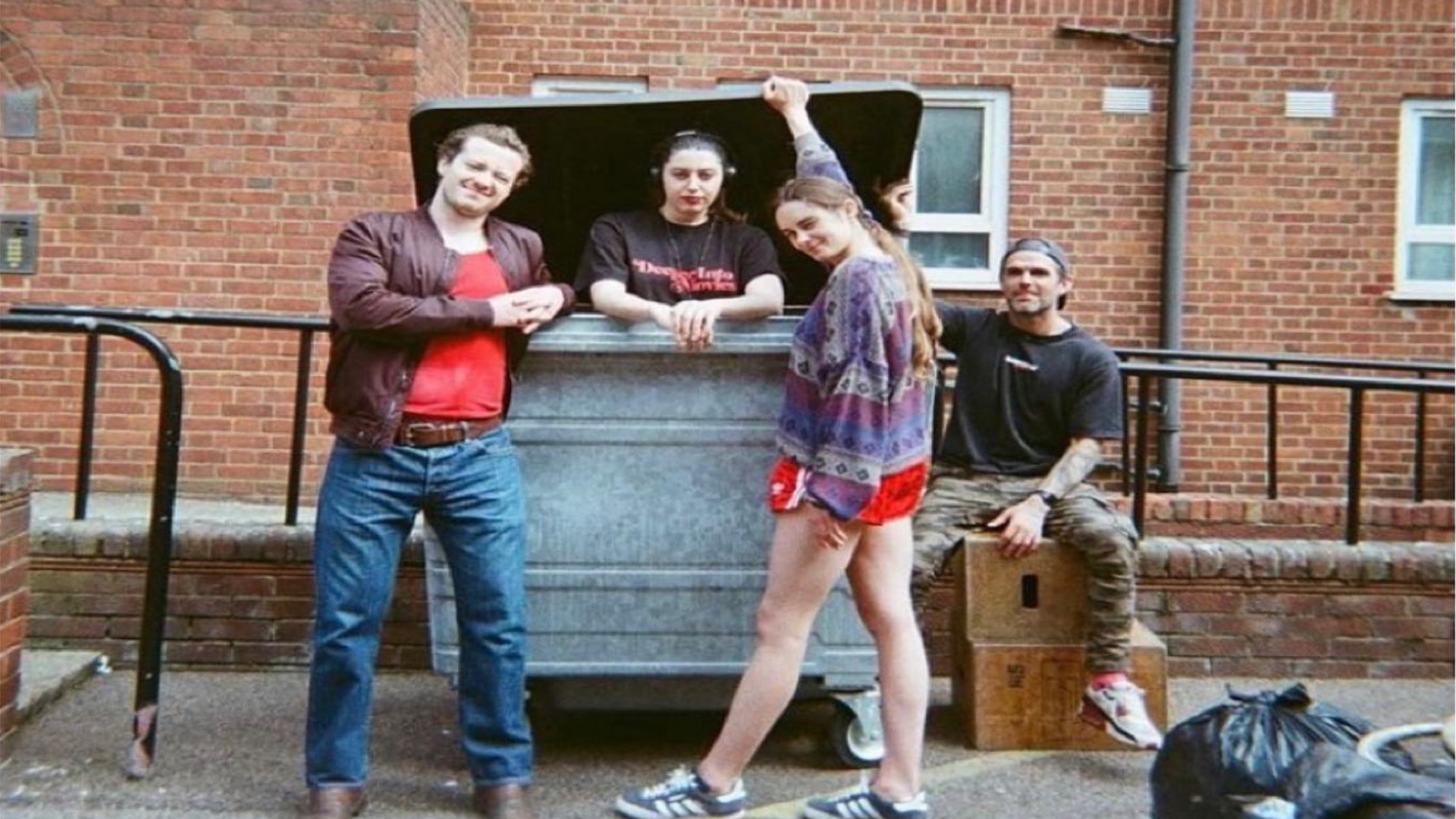
Do you feel a little bit of pressure given that this is your first project to be released after going viral for your performance in Stranger Things?
JQ: I filmed this before season four came out, which I'm really grateful for. This is a film that is completely independent of that. Obviously that happened and it was mad and I'm grateful for it, but it was very odd. But this film was completely separate to that and it's lovely to be part of something that collectively I feel like we have a lot of ownership over. Whilst it's great being part of those big franchises that lots of people have high expectations around, it's also lovely to tell stories that feel closer to my heart in a way and with people that I care about enormously and try and get that out into the world. It's a very different thing and equally as important.
There are all these quiet little moments of shock throughout the film, and I love how they're inserted – especially in contrast to like the very loud love parts of the film. Can you kind of speak to the juxtaposition of that?
LC: Yeah, I think that's just life, isn't it? Things come at you and sometimes the big things that are happening to you internally, some of the biggest news is just mundane and feels like nothing. You'll come home from a hectic day of work and someone will tell you someone's died or so and such, and you go and you feel that pain and then you stick the kettle on. And I think that's just very much is life and my experience.
What do you want people to take away from this film?
LC: That's for them [laughs]. But no, love, grief, or experience is the same. If we could measure feelings, would that be a blissful world or a horrifying world? But the fact that everyone is gonna feel something, something different, and experience something different from it is what makes cinema so special – and that's not for me. I made this film for me, I made this film for 14-year-old me to discover on Putlocker [laughs].
The fact that other people are seeing it, it's just a weird prospect to me because it was just gonna stay in a drawer in my hoarded bedroom. So that's for everyone else, to make whatever they want of it and I don't care. Hopefully something.
Hoard made its world premiere on September 2 as part of the Venice International Film Festival's Critics Week. A release date has not yet been announced, though the film has been acquired by distributor Alpha Violet. For more, check out our list of the most exciting upcoming movies in 2023 and beyond.
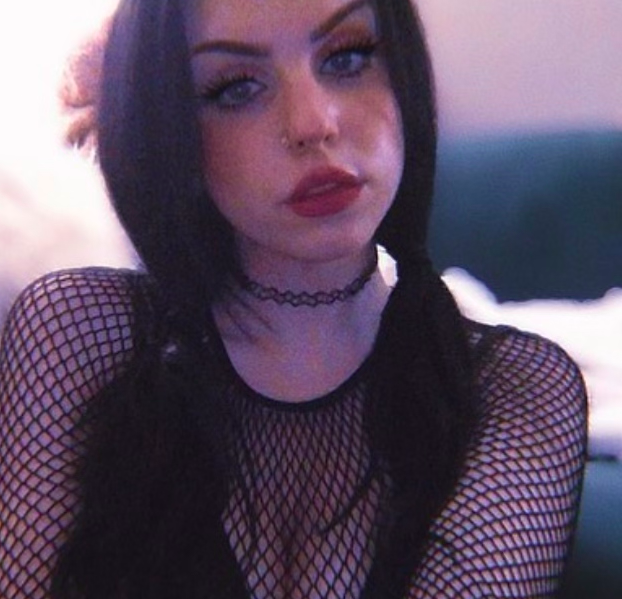
Lauren Milici is a Senior Entertainment Writer for GamesRadar+ currently based in the Midwest. She previously reported on breaking news for The Independent's Indy100 and created TV and film listicles for Ranker. Her work has been published in Fandom, Nerdist, Paste Magazine, Vulture, PopSugar, Fangoria, and more.


